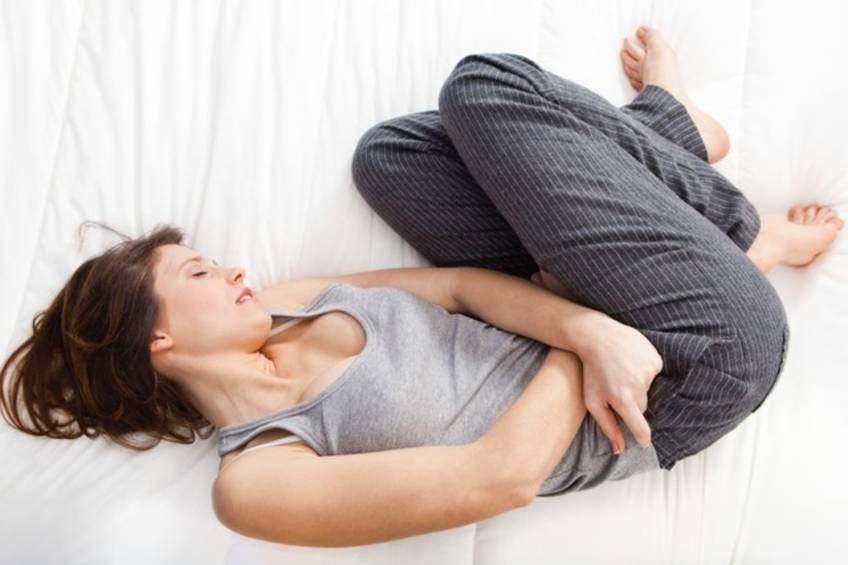GYNECOLOGIC CAUSES OF CYCLIC CHRONIC PELVIC PAIN
by Dr. Amal Badi and Dr. Koster
Cyclic pelvic pain occurs monthly and is associated with menstrual periods, whereas chronic pelvic pain lasts for at least six months. Although chronic pelvic pain can be caused by a variety of different organ disorders (gastrointestinal, urologic, musculoskeletal and neurological systems), with approximately 20% of women suffering from chronic pelvic pain, the cause is gynaecologic and related to menstrual cycles. Some of the gynaecologic causes of pelvic pain include: Uterine Fibroids, Pelvic Inflammatory disease and Pelvic adhesions.
Conditions
The cyclic pain is usually caused by conditions called Endometriosis and Adenomyosis. Women who are affected with Endometriosis often have Adenomyosis and vice versa.
Endometriosis is a condition in which endometrial tissue (the tissue that normally lines the inside of the uterus) is present outside of the uterus, most commonly: the ovaries, fallopian tubes and the tissue covering the pelvic organs behind and around the uterus. Some women with endometriosis have no symptoms, while others experience marked pain and may have problems with fertility.
Adenomyosis is a condition in which endometrial tissue grows inside the uterine walls. It causes an enlarged uterus and heavy, painful periods. With endometriosis, the endometrial-like tissue acts as endometrial tissue would, it bleeds with each menstrual cycle. But because this tissue has no way to exit the body, it becomes trapped, causing endometriosis nodules. When it involves the ovaries, cysts called endometriomas will form. If the nodules occur outside the uterus, the surrounding tissue can become irritated, eventually developing scar tissue and adhesions (when pelvic tissues and organs stick to each other).
Symptoms
Women suffering from Endometriosis and/or Adenomyosis can have pain during menstruation, urination, deification and intimate relations, whilst some will have difficulty getting pregnant. Women with Adenomyosis may have long and heavy menstruations that can lead to anaemia in severe cases.
Signs and symptoms of endometriosis may temporarily improve with pregnancy and may disappear completely with menopause, except when taking oestrogen.
Causes
Although there are different possible explanations, the exact cause of endometriosis is not certain. If one or more relatives (mother, aunt or sister) have endometriosis, you may be at a higher risk of having it too.
Diagnosis
Sometimes, it is difficult to detect the specific cause of chronic pelvic pain because a number of different conditions can cause it, but if the pain is cyclic, it is mostly caused by either Endometriosis or Adenomyosis, so it is very important for you to give a good description of your symptoms and for your doctor to ask about the location of your pain during a pelvic examination. Often, it’s not possible to feel small areas of endometriosis during examination.
Vaginal ultrasound is used to get the best view of the reproductive organs. A standard ultrasound won’t definitively tell your doctor whether you have endometriosis and only doctors with highly specific training would be able to identify the appearance of Adenomyosis and the location and size of Endometriosis nodules.
MRI is another modality that can help with surgical planning, giving your surgeon detailed information about the location and size of endometrial implants.
Laparoscopy was the gold standard to diagnose Endometriosis, but not anymore, since a vaginal ultrasound in the hand of well-trained doctors will identify the disease. Today, Laparoscopy is used to treat endometriosis and often, with proper surgical planning, your surgeon can fully treat endometriosis during the laparoscopy so that you need only one surgery.
Treatment
Treatments depend on specific symptoms and often includes lifestyle changes, medications and surgery.
For more information, please visit www.kosterclinic.com, email [email protected] or give the super-friendly team a call on 04 388 1887.

